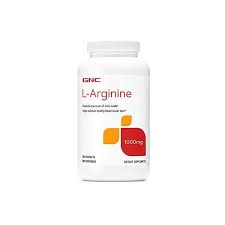L-Arginine – Uses, Side Effects, and More
L-arginine is an amino acid naturally found in red meat, poultry, fish, and dairy. It is necessary for making proteins and is commonly used for circulation.
L-arginine is converted in the body into a chemical called nitric oxide. Nitric oxide causes blood vessels to open wider for improved blood flow. L-arginine also stimulates the release of growth hormone, insulin, and other substances in the body. It can be made in a lab and used in supplements.
People use L-arginine 남자 강직도 영양제 for chest pain and various blow flow issues, erectile dysfunction, high blood pressure during pregnancy, and a serious disease in premature infants called necrotizing enterocolitis (NEC). It’s also used for many other conditions, but there is no good scientific evidence to support these other uses.
When taken by mouth: L-arginine is possibly safe for most people when taken short-term. It can cause some side effects such as stomach pain, bloating, diarrhea, and low blood pressure.
When applied to the skin: L-arginine is possibly safe for most people when used short-term. It’s also possibly safe when used in a toothpaste short-term.
When inhaled: L-arginine is possibly safe for most people when used short-term.
Special Precautions and Warnings
When taken by mouth: L-arginine is possibly safe for most people when taken short-term. It can cause some side effects such as stomach pain, bloating, diarrhea, and low blood pressure.
When applied to the skin: L-arginine is possibly safe for most people when used short-term. It’s also possibly safe when used in a toothpaste short-term.
When inhaled: L-arginine is possibly safe for most people when used short-term. Pregnancy: L-arginine is possibly safe when taken by mouth for a short time during pregnancy. Not enough is known about using L-arginine long-term in pregnancy. Stay on the safe side and avoid long-term use.
Breast-feeding: There isn’t enough reliable information to know if L-arginine is safe to use when breast-feeing. Stay on the safe side and avoid use.
Children: L-arginine is possibly safe in children when taken by mouth, when used in a toothpaste, or when inhaled.
Guanidinoacetate methyltransferase deficiency (GAMT): People with this inherited condition are unable to convert arginine and other similar chemicals into creatine. To prevent complications from this condition, avoid L-arginine supplements.
Recent heart attack: L-arginine might increase the risk of death after a heart attack, especially in older people. If you have had a heart attack recently, don’t take L-arginine.
Kidney disease: L-arginine has caused high potassium levels when used by people with kidney disease. In some cases, this has resulted in a dangerous irregular heartbeat.
Surgery: L-arginine might interfere with blood pressure control during and after surgery. Stop taking L-arginine at least 2 weeks before a scheduled surgery.



